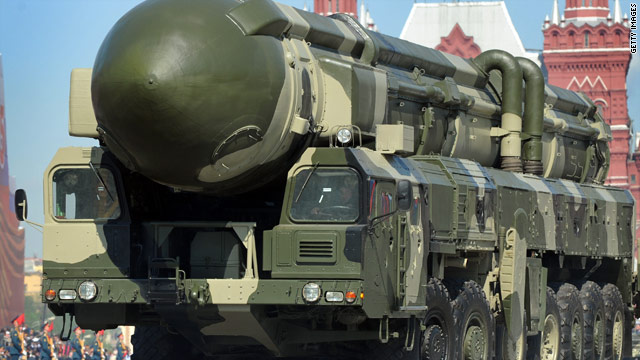Clinton urges quick ratification of nuclear arms treaty

- NEW: Adm. Mike Mullen voices support for ratification of the new START treaty
- Hillary Clinton urges the Senate to approve the treaty in the lame-duck session
- Clinton, Kerry and Lugar warn that U.S. inspections of Russia's arsenal stopped last December
- Republicans worry that the White House isn't doing enough to modernize the U.S. arsenal
Washington (CNN) -- Secretary of State Hillary Clinton urged the lame-duck Senate on Wednesday to ratify the new Russian nuclear arms control treaty, warning that a failure to do so would undermine a critical need for "stability, transparency and predictability."
Clinton, appearing on Capitol Hill to push for approval of the New Strategic Arms Reduction Treaty, said the administration intends "to do everything we can during this lame-duck session to get a vote to ratify this treaty."
"This is not an issue that can afford to be postponed," she said.
Clinton was joined by Senate Foreign Relations Committee Chairman John Kerry, D-Massachusetts, and Sen. Richard Lugar, R-Indiana, the top Republican on the committee.
All three noted that there have been no American "boots on the ground" inspecting the Russian nuclear arsenal since the expiration of the old treaty last December.
Russia still has thousands of nuclear weapons, Lugar warned, and "any one of those warheads could obliterate the city of Indianapolis," a reference to the capital of his home state. This is an "existential problem for our country," he said.
Joint Chiefs of Staff Chairman Adm. Mike Mullen later said he is "extremely concerned" that nearly a year has passed since the expiration of the old treaty.
"The military leadership across the board in the United States ... supports moving forward with this treaty and I hope we can do that as rapidly as possible."
If approved, the new START treaty would restart mutual inspections while limiting the United States and Russia to 1,550 warheads and 700 launchers each.
Top Democrats were stunned Tuesday when Arizona Sen. Jon Kyl, the Republican point man for Senate deliberations over the treaty, said in a statement that he had told Senate Majority Leader Harry Reid, D-Nevada, that the accord should not be considered before January, when the newly elected Congress is seated.
He said he didn't think the current Senate should ratify the treaty "given the combination of other work Congress must do and the complex and unresolved issues related to START and modernization."
The White House learned about Kyl's opposition to taking up the vote during the lame-duck session "via the press," according to a senior administration official.
The White House, which has already committed $80 billion to nuclear modernization efforts, recently promised to spend $4 billion in an effort to win the support of Kyl and other conservatives.
"We're talking. In good faith," Kyl told CNN on Wednesday as he walked into a Senate vote while escorted by Kerry.
Alarmed Democrats have repeatedly warned it would be dangerous to further delay consideration of the treaty. On Tuesday, Vice President Joe Biden called the pact, among other things, "a fundamental part of our relationship with Russia, which has been critical to our ability to supply our troops in Afghanistan and to impose and enforce strong sanctions on the Iranian government."
The vice president said the administration will continue to seek Senate approval of the treaty before the end of the year. A two-thirds Senate vote is required to approve the measure; the more conservative incoming Senate is believed to be less likely to ratify the accord.
Seventy-three percent of Americans believe the Senate should ratify the treaty, according to a CNN/Opinion Research Corporation survey released Tuesday. Twenty-three percent are opposed to its approval.
Russia has not approved the measure yet.
CNN's Alan Silverleib, Jill Dougherty, and Laurie Ure contributed to this report
